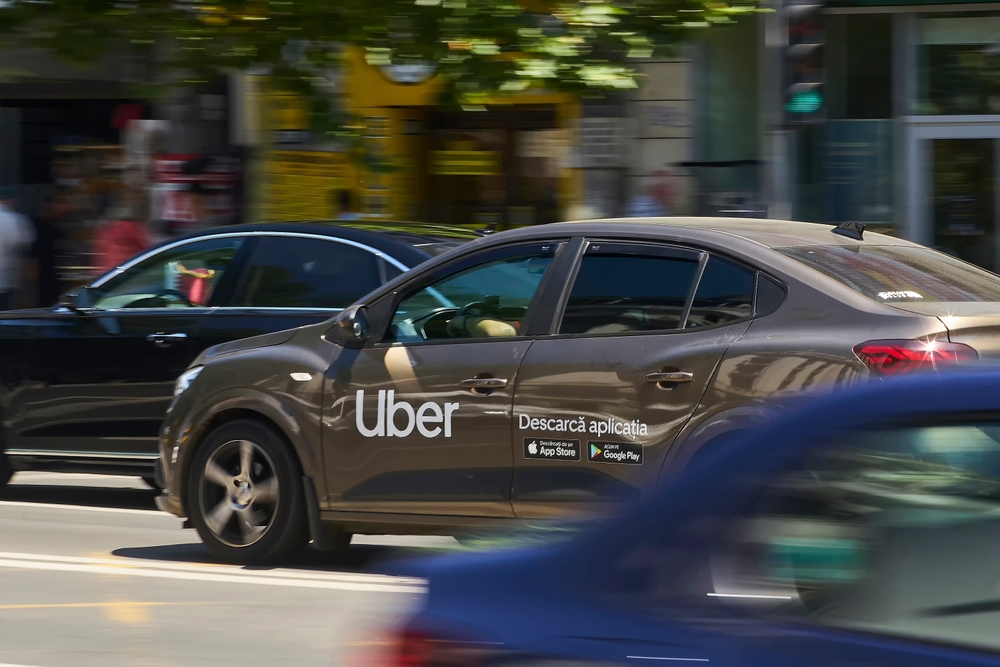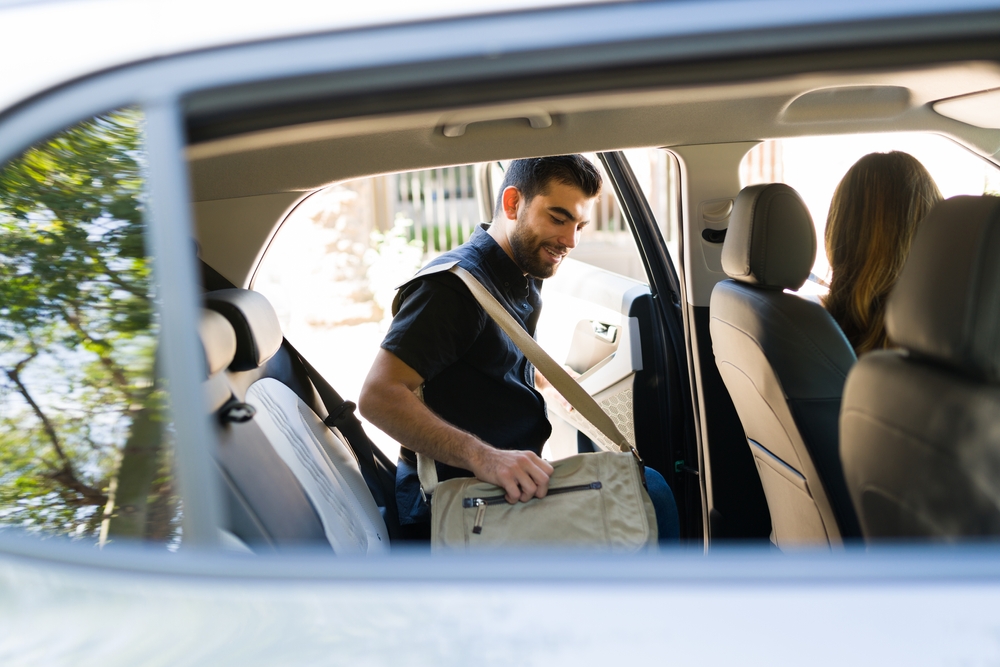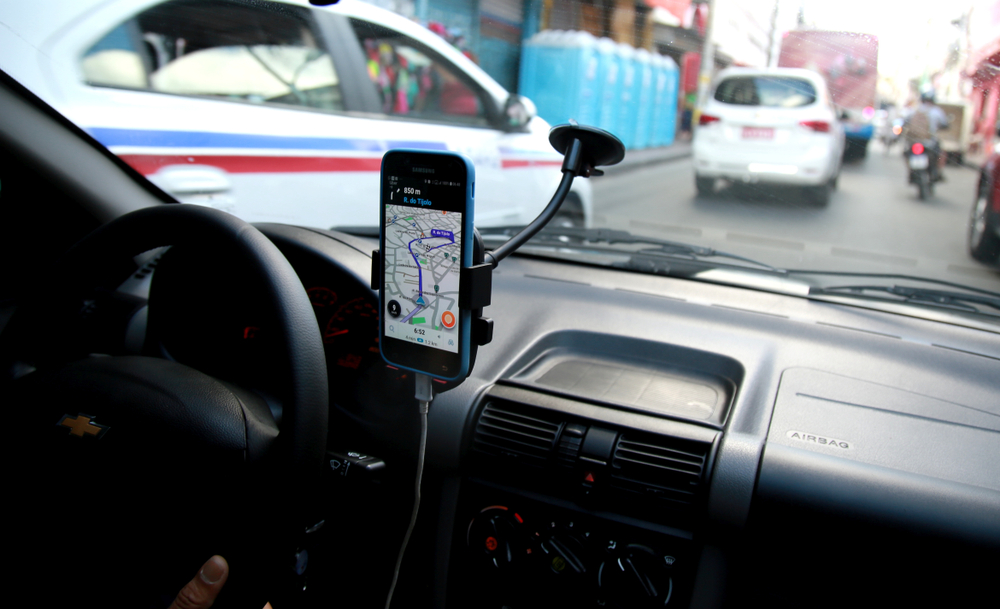Uber revolutionized the world of transport, offering convenience at the tap of a button. However, as its popularity grows, so does the number of accidents involving Uber vehicles. Whether you're a passenger, an Uber driver, or another motorist involved in a collision with an Uber car – navigating the aftermath can be daunting.
Understanding who you can hold liable in such accidents involves grappling with unique operational dynamics that set rideshare services like Uber apart from traditional taxi services. This process might seem overwhelming, especially when you're trying to recover from an accident both physically and emotionally.
That's where Nicolet Law Accident & Injury Lawyers step in. We bring extensive legal experience to your aid and shoulder the complexities of determining liability so that you don't have to. In this comprehensive guide, we'll delve into all aspects surrounding liability in an Uber accident – highlighting why having an experienced Duluth Uber accident lawyer isn't just beneficial but essential.
The Challenges in Uber Accident Liability

Ridesharing services like Uber, by their very nature, present unique challenges when it comes to accident claims. Unlike traditional taxi services, where drivers are usually employees of a taxi company, Uber drivers are classified as independent contractors. This distinction plays a significant role in determining liability in case of an accident and shapes the dynamics of any ensuing claim.
Further complicating the situation is the app-based technology that underpins Uber's operation. The status of the driver within the app at the time of an accident – whether they were waiting for a ride request, en route to pick up a passenger, or during an active ride – can significantly impact which insurance policy applies.
Nicolet Law Accident & Injury Lawyers understand these nuances intimately. Our team is skilled at navigating these intricate variables on your behalf to ensure all factors are appropriately considered while pursuing your claim.
Insurance Coverage in Uber Accidents
Understanding the insurance coverage provided by Uber is critical when seeking compensation, but it can be a complex landscape to navigate alone. At Nicolet Law Accident & Injury Lawyers, we assume this burden so that you can focus on recovery.
Uber provides varying levels of insurance coverage depending on the driver's status at the time of an accident. When drivers are logged into the app but haven't yet accepted a ride request, they're covered by a lower level of liability insurance. Once a trip is accepted and until its completion, Uber provides significantly higher coverage.
However, these policies don't always provide a straightforward route to compensation. Complications may arise in determining which policy applies and how much it should cover. It’s also not uncommon for rideshare companies to deny claims based on their assertion that drivers are independent contractors rather than employees.
At Nicolet Law Accident & Injury Lawyers, our attorneys have extensive experience in dealing with such challenges. They will ensure that all avenues of potential compensation are fully explored and will robustly counter any attempts by insurers to shirk their responsibilities.
How Liability Is Determined in an Uber Accident
Traditionally, in vehicle accidents, liability would either fall upon one driver or another or, in some cases, both. Factors considered would be the rules of the road, eyewitness testimonies, and evidence from the accident scene.
Yet, when an Uber vehicle is intertwined in an accident, the lines of liability can blur. Here's why:
- The Uber App Status: The liability can shift depending on the status of the Uber app. Was the driver waiting for a ride request, en route to pick up a passenger, or actually transporting a passenger?
- Personal Car for Professional Use: Most Uber drivers use their personal vehicles for rideshare purposes. This blurs the lines between personal auto insurance and the insurance provided by Uber.
- The Nature of the Accident: As with any vehicular accident, the specific details matter. Was the Uber driver at a complete stop when another vehicle hit them? Or did they make an abrupt and unsafe decision that resulted in the accident?
Such complexities can overwhelm anyone. With various policies and multiple parties potentially involved, it's not just about determining who is at fault but also understanding which insurance policy comes into play and when.
These variables necessitate the experience of a skilled Uber accident attorney who understands not only the policies of ridesharing platforms like Uber, but also the regional statutes that affect car accident claims where you live.
Who Can You Hold Liable?
Understanding who you can hold accountable is crucial to ensuring that accident victims get the justice and compensation they deserve.
Here are the key players to consider:
- Uber Driver: Just like any other driver, Uber drivers must drive safely and obey traffic laws. If the Uber driver drove recklessly, was distracted, or otherwise caused the accident due to negligence, you can hold them liable. Their personal auto insurance might initially cover damages, but in some situations Uber’s insurance policy might kick in, especially if they actively carried a passenger or were on their way to pick one up.
- Another Motorist: Sometimes, the fault lies not with the Uber driver but with another motorist involved in the accident. For instance, if another vehicle runs a red light and collides with an Uber car, the driver of that vehicle might bear liability. Depending on the state where the accident occurred, the victim might seek compensation through the at-fault driver's insurance policy or their own insurance coverage.
- Uber Company: Uber maintains a $1 million liability insurance policy, which can come into play under specific conditions. For example, if an accident occurs while an Uber driver actively transports a passenger and the driver's personal insurance doesn’t cover all the damages, Uber’s policy might cover the remainder. Reaching into Uber’s deeper pockets isn't easy. The company might fight the claim, emphasizing the independent contractor status of its drivers.
- Vehicle Manufacturers or Mechanics: In rarer cases, a mechanical failure or a vehicle defect might cause a crash. If faulty brakes, tire blowouts, or other mechanical issues led to the mishap, and they resulted from negligence on the part of a mechanic or a manufacturing defect, then you can hold that party liable.
Identifying the cause of the accident and the responsible party is a nuanced process laden with legal intricacies. It's not merely about pointing a finger but rather comprehensively examining the evidence, understanding insurance policies, and ensuring the victim's best interests are at the forefront.
Such complexities underscore the importance of partnering with knowledgeable legal professionals, like Nicolet Law Accident & Injury Lawyers, who can demystify these layers and champion the rights of those affected.
Liability and Insurance Coverage Depends on Your State
While the general guidelines surrounding Uber accidents have overarching similarities, each state can have its nuances in terms of regulations, policies, and legal proceedings.
Here's a closer look at Minnesota, Wisconsin, and North Dakota:
Minnesota

- Insurance Requirements: Minnesota requires rideshare companies like Uber to have insurance coverage that protects both drivers and passengers. When the app is on, but no passenger is in the vehicle, the insurance coverage is set at a minimum of $50,000 for personal injuries per person, $100,000 for personal injuries to all persons in any one accident, and $30,000 for property damage. These figures significantly increase when a passenger is in the vehicle.
- No-Fault State: Minnesota operates on a no-fault auto insurance system. This means that, regardless of who caused the accident, individuals turn to their own insurance policies first for compensation. However, in severe injury cases, one can step outside of this no-fault system and file a lawsuit against the responsible party.
Wisconsin
- Insurance Requirements: Wisconsin mandates rideshare companies to have insurance that covers at least $1 million for accidents, injuries, and fatalities. This comes into play when a passenger is in the car or if the driver is en route to pick up a passenger after accepting a ride.
- Contributory Negligence: Wisconsin follows the modified comparative negligence rule. If an injured party is partially at fault, their compensation can be reduced by the percentage of their fault. However, if they are 51% or more at fault, they may not recover any compensation.
North Dakota
- Insurance Requirements: Similar to Wisconsin, North Dakota requires rideshare companies to have $1 million in insurance coverage for any damages or injuries that occur from the time a passenger enters the vehicle until they exit.
- Pure Contributory Negligence: North Dakota follows a pure contributory negligence rule. This means that if a victim is even 1% at fault for the accident, they may not be eligible to receive any compensation.
Given these state-specific intricacies, it's evident how essential local knowledge is when pursuing a claim.
Whether navigating Minnesota's no-fault system or understanding the implications of contributory negligence in Wisconsin and North Dakota, having the guidance of Nicolet Law Accident & Injury Lawyers, who are well-versed in these regional laws and policies, can make all the difference in the outcome of a case.
Steps to Take After an Uber Accident That Help Strengthen Your Claim
The aftermath of an Uber accident can be a tumultuous experience. However, the actions you take immediately following the incident can greatly influence the strength of your potential claim and help establish clear liability.
Here's a guide to bolstering your legal stance and ensuring the liable party is held accountable:
- Safety First, Always: After ensuring that everyone is safe, move to a secure location. By preventing further damages or injuries, you're also minimizing complications that can muddy the waters of liability determination.
- Alert the Authorities: Reporting the accident to the police isn't just about immediate safety—it's also about having official and unbiased documentation of the incident. This report can play a pivotal role in establishing who was at fault.
- Medical Evaluation is Paramount: Seeking immediate medical attention not only safeguards your health but also provides concrete evidence of any injuries sustained. A clear medical record linking injuries to the accident can make it difficult for insurance companies to dispute claims later.
- Document Meticulously: Photographs of the accident scene, damages, road conditions, and even the positioning of vehicles can help recreate the event and pinpoint liability. Eyewitness accounts can be especially powerful in corroborating your version of events.
- Exchange Relevant Information: Having the Uber driver's and other involved parties' details is crucial. However, remember to remain objective and calm. Avoid getting into discussions about the accident's specifics, as these can be misconstrued or taken out of context later.
- Avoid Speculating on Liability: Even if you believe you know who was at fault, avoid making statements or admissions. Anything said can potentially weaken your claim. Let the evidence speak for itself, and allow experienced legal professionals to argue liability on your behalf.
- Notify Uber Promptly: By reporting the incident to Uber, you ensure there's an official record from the outset. This can be particularly important when it comes to tapping into Uber's insurance coverage.
- Engage With Nicolet Law Accident & Injury Lawyers: Navigating the intricacies of liability in an Uber accident can be challenging. Before any official statements or settlements, reach out for legal counsel. Nicolet Law's experience in this realm can be instrumental in establishing clear liability and maximizing your compensation. Their deep understanding of rideshare accidents in Minnesota, Wisconsin, and North Dakota ensures you have a robust legal strategy tailored to your situation.

By diligently following these steps, you don't merely protect your immediate interests—you lay down a strong foundation for a potential legal claim. Establishing clear liability is paramount, and with the right actions and a stalwart legal team like Nicolet Law by your side, you're better positioned to ensure justice is served.
If you or someone you love has been involved in an Uber accident, contact Nicolet Law or call 1-855-NICOLET for a free consultation with an attorney near you.
